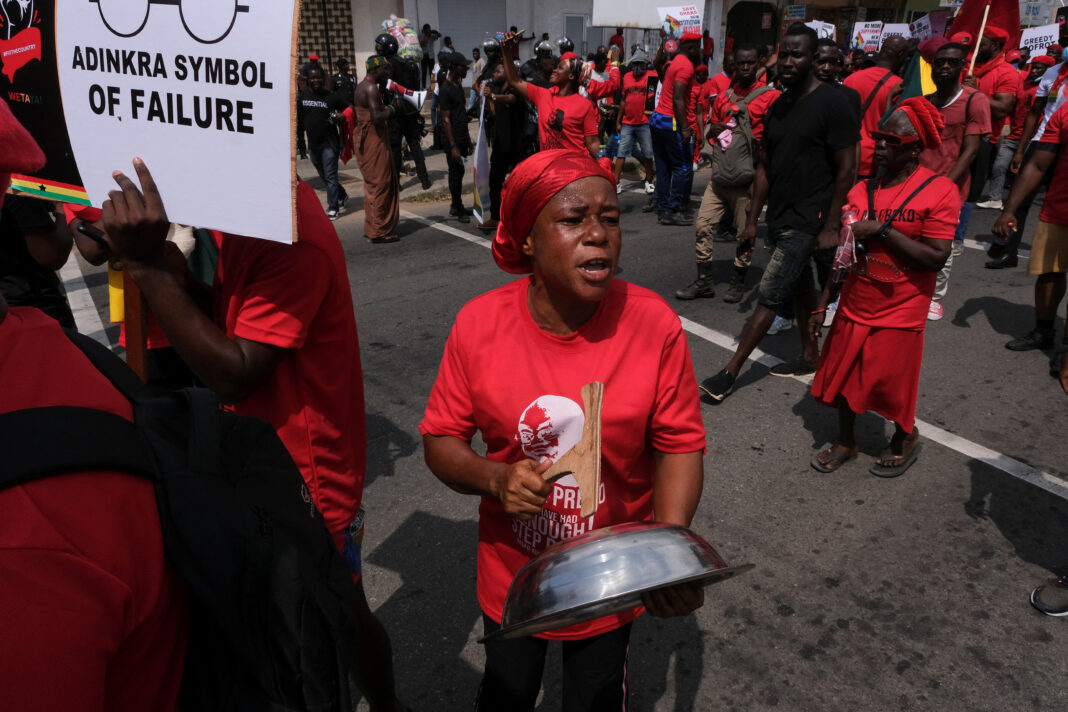Ghana is highly dependent on Ukraine for food and on Russia for a consistent part of its energy resources. The country has been considerably affected by the price surge of said products.
When drawing conclusions on the global consequences of the geopolitical challenges that the world has been facing this last year, one cannot ignore the resonance they have had in other continents. For instance, we can dwell on the African one, and look at how countries have been affected by the range of emergencies that we have been faced with lately. Among these, a worrying situation is the one of Ghana.
After some tumultuous years following its independence in 1957, Ghana finally found democratic stability under President Jerry Rawlings in 1992, who drafted a constitution that allowed for the formation of multiple political parties. Ever since, the country has undergone competitive multiparty elections and transfers of power between the two main political parties.
Due to its overall achievement of a functioning and free electoral process, it has so far been considered one of the most successful African democracies, nevertheless, it is now facing an economic crisis which could gravely affect its efforts towards economic growth and plunge the population into challenging living conditions.
Ghana’s economy had already undergone strong difficulties due to the pandemic and was still dealing with its aftermath when the repercussions of the Ukrainian conflict reached its shores. Being highly dependent on Ukraine for food and on Russia for a consistent part of its energy resources, the country has been considerably affected by the price surge of said products. At the moment, Ghana is the country with the highest food prices in Africa and has been experiencing multiple food shortages. Data from S&P reveal that inflation on domestic essentials has risen all the way up to 60%, imposing a remarkable burden on households, which have now been paying around two-thirds more than previous years for essential expenditures.
Looking at the details of the economic position of the country, we can see that the markets are undergoing a moment of severe stress, with public debt reaching an all-time high value of 60 billion. With a yield rate of now 35%, the country stands to face important challenges to pay back its dues. Estimates are that the country will have to give up almost 44% of its yearly gross product to pay back this amount, inevitably reducing money available to invest in the welfare of its people.
Moreover, as the Ghanian cedi has weakened of over 40% against the dollar, people have been using dollars instead of their own country’s currency to buy goods, a practice that is imposing a significant cost on them. This is only a further weight that adds up to the all-time high inflation and the decline in incomes that the population has been experiencing. As a matter of fact, 22 million people in Ghana, which account for 1/3 of the population, have reported declines in their incomes between 2020 and 2021, a situation which, so far, does not seem to be improving.
In the end, it all comes down to a terrible economic crisis which is starting to have political repercussions, threatening to plummet the country into chaos. People have been protesting in the streets, advocating for the dismissal of the Minister of Finance and Economic Planning Ken Ofori-Atta. So far, the President Nana Akufo-Addo has not complied with said demands, a very puzzling behavior which could reveal some ghosts underlying the allegedly functioning democracy of the country. If ministerial appointments have been used by the president to place some of his most loyal elite into power in exchange for party financing, it could reveal a dangerous precedent that should call for action of democratic checks and balances.
And in fact, it is from this crisis that the Ghanian parliament could emerge as a stronger actor by exhausting the requests that have gone unheard by the president. According to the constitution, the Ghanian Parliament has in fact the right to censure a minister, and it could now exercise this function for the first time, through a motion that is being discussed these days. Both major parties seem to support this procedure, as they wish to satisfy the needs of their constituents, even if this means going against the president’s actions.
The choice of a parliament to side with its electors instead of the directives of the president could open a season of strong political decisions for the Ghanian parliament and set a meaningful example for some of its other counterparts. Only time will tell whether we are witnessing an historical passage in the history of Ghana and perhaps the whole continent.
When drawing conclusions on the global consequences of the geopolitical challenges that the world has been facing this last year, one cannot ignore the resonance they have had in other continents. For instance, we can dwell on the African one, and look at how countries have been affected by the range of emergencies that we have been faced with lately. Among these, a worrying situation is the one of Ghana.
After some tumultuous years following its independence in 1957, Ghana finally found democratic stability under President Jerry Rawlings in 1992, who drafted a constitution that allowed for the formation of multiple political parties. Ever since, the country has undergone competitive multiparty elections and transfers of power between the two main political parties.





